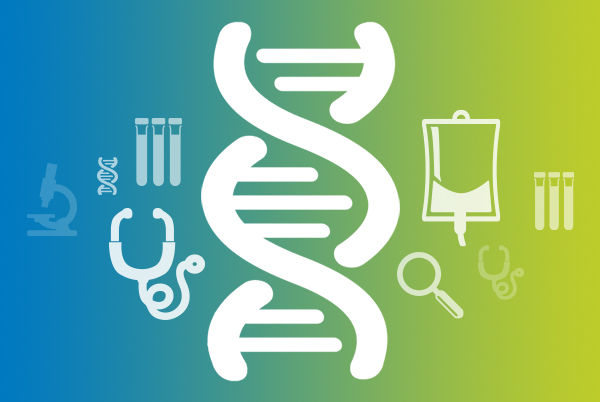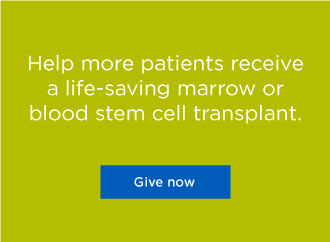What is the better donor option for patients receiving hematopoietic cell transplantation (HCT) for lymphoma when a fully matched family donor is unavailable, a haploidentical (half matched) related (Haplo) or matched unrelated donor (MUD)? Investigators
from the Center for International Blood and Marrow Transplant Research (CIBMTR) and the European Society for Blood and Marrow Transplant (EBMT) sought to find out. The study compared the outcomes for U.S. and European lymphoma patients receiving HCT
from a Haplo or MUD using a uniform posttransplant cyclophosphamide based (ptCy) graft versus host disease prophylaxis strategy.
The answer, in an international observational study of 2,155 adult patients, was a MUD was the better option,
if available. MUD transplants had better overall survival, disease free survival and engraftment, and fewer complications — lower acute and chronic graft-versus-host disease and transplant-related mortality. Using a ptCy GvHD prophylaxis strategy
does not fully neutralize the beneficial effects of better HLA (Human Leukocyte Antigen) matching.
As a result of these findings, the CIBMTR and EBMT investigators conclude that MUD should be prioritized over a haploidentical donor, if available
in a timely way, for patients who don’t have a fully matched family donor.
HLA matching matter when it comes to HCT, and this study clarifies that — at least for lymphoma patients — using a well-matched unrelated donor results in superior
outcomes compared to half-matched related donor.
Learn more by reviewing a comprehensive analysis and description of the study.
CO-AUTHORS
Study led by the CIBMTR Immunobiology Working Committee and EBMT Lymphoma Working Party
CIBMTR: Dr. Yung-Tsi Bolon (lead), Steve Spellman, Dr. Stephanie Lee, Dr. Tao Wang, Dr. Mehdi Hamadani, Meilun He, Dr. Steven Marsh, Dr. Sophie
Paczesny, Dr. Shahinaz Gadalla
EBMT: Dr. Alberto Mussetti (lead), Dr. Abraham Kanate, Dr. Herve Finel, Dr. Arian Boumedil, Dr. Bertram Glass, Dr. Lucas Castagna, Dr. Didier Blaise, Dr. Peter Dreger, Dr. Ana Sureda
.jpg) " />
" />


